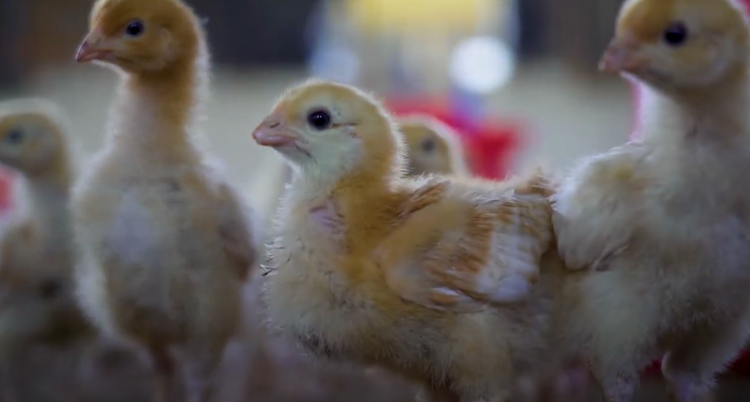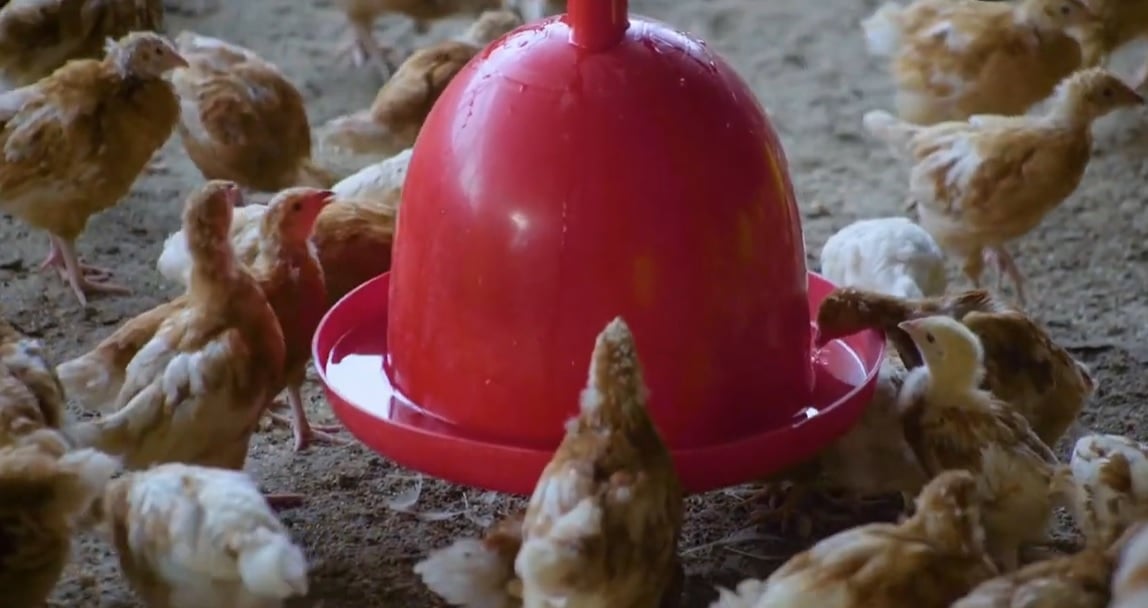10 tips to prevent pecking and cannibalism in laying pullets
Many poultry farmers use some form of beak treatment to prevent damage from pecking in their flocks. The way we treat the beaks has changed a lot during the last decades. In the past, severe cutting with hot blades, sometimes twice during rearing (“debeaking”), was necessary, at 4-5 weeks and 8-12 weeks. Later, one treatment was found to be sufficient and the age at which beaks are treated shifted to 10 days. Now there is the option to have the beaks treated in the hatchery on day 1, with infrared light treatment (no wounds). In some flocks, red plastic "spectacles" are applied to the beaks to prevent pecking during the laying period. However, this will not prevent pecking during the rearing period.

Stimulate good feed intake
The less severe the treatment, the better the growth and uniformity of the flock. Especially in African countries with a hot climate, it is important to stimulate good feed intake. Cutting the beaks during rearing will always reduce feed intake for a few days and sometimes much longer.
It is important to manage the flocks well to prevent cannibalism. We can use the most chicken-friendly, less severe method of beak treatment if we consider the factors that could cause injurious pecking.
What are the factors that can cause pecking and how to manage them? 10 practical tips:
- Unbalanced diet: With Koudijs feeds, a well-balanced diet is not a concern. It is known that a shortage of salt and some amino acids can trigger pecking. Follow the mixing advice and use quality ingredients if you use Koudijs concentrates.
- No litter: Injurious pecking starts as feather pecking. The first signs include only a few down feathers on the floor during rearing. Supply dry, friable litter like wood shavings or rice hulls. The birds will scratch and peck in the litter and focus their pecking on the floor.
- Overcrowding: Too high stocking density can cause stress. Especially combined with the effects of crowding, this will result in more interactions and less possibility to escape aggression. Be sure to avoid overcrowding in the first weeks of rearing. Supply perches after 4-5 weeks of age.
- Excessive light: Bright light can be harmful, especially if birds have been reared in the first weeks in a very dark compartment and are not used to it. Provide enough light in the first weeks, especially if they are housed in open houses during lay.
- Shortage of feeder or drinker space: If birds struggle to eat and drink at the same time, there is a higher chance they will scratch and damage each other, which will stimulate pecking too.
- Genetics: Different birds show different temperaments. Still, geneticists have done much to develop less aggressive laying hens. The difference in pecking behavior between commercial layer breeds is small now.
- Stress: Any form of not-well-being of chickens can trigger pecking. Chickens like routine, so try to maintain the same routine every day. Changes are not welcome and cause stress.
- Nest boxes: Light shining into nest boxes will cause pecking and even cause prolapses. Overcrowding of nest boxes has to be avoided. Even if there are enough boxes, some might not be used, and others therefore overcrowded.
- Injured birds: These are an open advertisement: “peck me, peck me!” Always immediately attend to injured birds or birds that show blood. Treat them with a purple iodine spray and put them in a separate pen.
- Excessive heat: Especially in combination with high humidity, excessive heat will cause panting and crowding of birds in cooler, darker areas (walls). This can trigger pecking as well. Ensure adequate air movement at bird level. Perches will help, as they reduce stocking density at floor level and enable better use of air movement. Be sure to clean the mesh in the sidewall openings and remove dust and cobwebs to allow more air to enter the house.
Want to learn more about debeaking? Watch the Farm Up, with Koudijs! tutorial on debeaking layers, or contact your local Koudijs sales representative.

Watch the tutorial on debeaking
